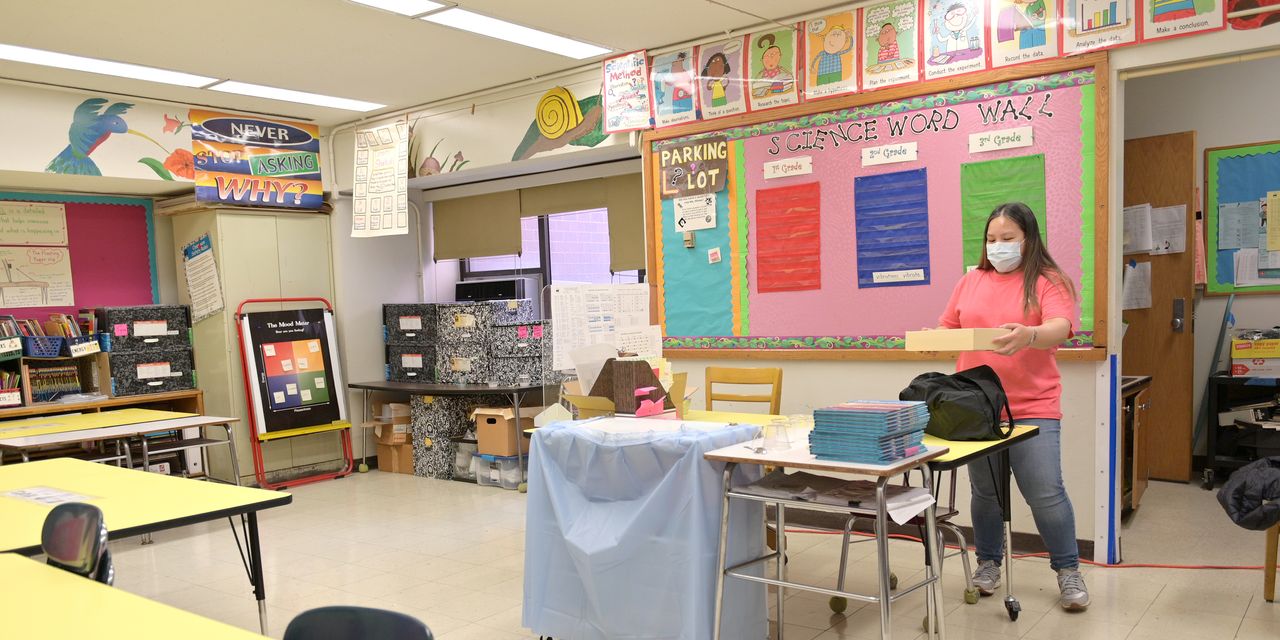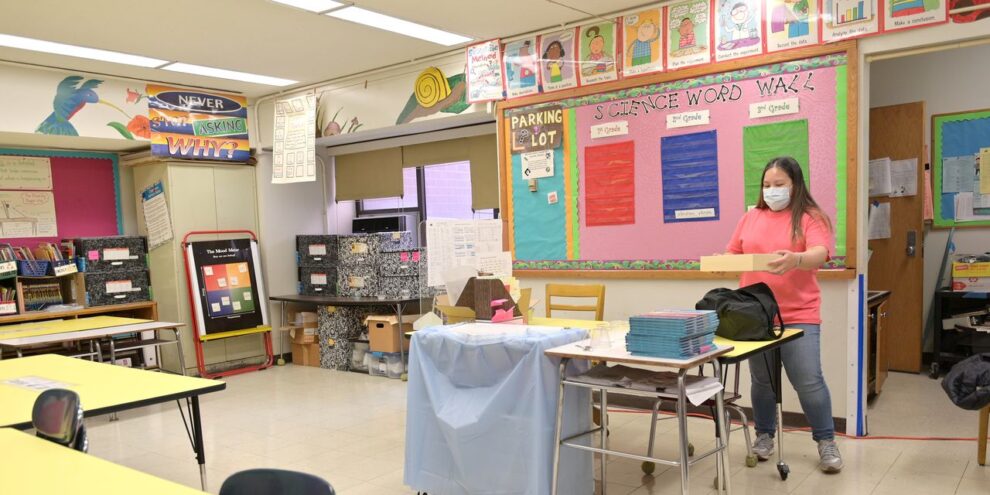
Though teaching supplies typically include books, paper and pencils, classroom material in a pandemic age also includes masks, face shields, hand sanitizer and air purifiers.
Now, teachers can include those purchases in the $250 deduction educators get every year for their out-of-pocket expenses, the Internal Revenue Service confirmed Thursday.
The list of personal protective equipment eligible for the deduction include masks, disinfectants, soap, hand sanitizer, gloves, air purifiers, tape for social distancing within the classroom and physical barriers, like a pane of plexiglass to wall off a desk.
The deduction can cover other items the Centers for Disease Control and Prevention recommends to stop the spread of COVID-19, the IRS said.
The announcement comes a week ahead of the formal Feb. 12 start to tax season, when teachers, and everyone else, can begin submitting their 2020 income tax returns to the IRS.
It also follows a tumultuous time for educators and students. Schools across the country went remote in the early spring to slow the coronavirus’ spread.
In the fall, many rural school districts returned to in-person classes while many urban districts — with notable exceptions like New York City’s hybrid model — stayed remote and suburban districts offered a mix of approaches.
School reopening debates could get fierce, sometimes pitting district officials and parents pressing for in-person classes against teachers and unions worried about safety.
School districts were projected to spend more than $25 billion on personal protective equipment, according to EducationWeek, citing the School Superintendents Association.
But too many teachers still have to pay up, said the American Federation Teachers, a 1.6 million-member union.
“The extra support is welcome,” the AFT said on the tax announcement. Still, “it is inexcusable that educators are being relied upon to purchase their own PPE to protect their kids and themselves in a pandemic. … There is no other profession we know of where workers must subsidize what should be a cost borne by an employer as a necessity of the job; and the COVID crisis has laid bare this outrageous burden for all to see.”
The bit of news was a good gesture, but more needs to be done, according to Colin Sharkey, executive director of the Association of American Educators, a non-union professional teacher organization.
He welcomed Biden administration plans to get money to district facing pandemic budget woes, and more PPE for teachers and students. “However, individual educators too have suffered the financial burden required to meet the technological demands of distance learning,” he said.
The deduction this year should be $1,000, and allow for $400 in internet expenses, Sharkey urged.
The IRS says people eligible for the deduction include K-12 teachers and anyone who is an “instructor, counselor, principal, or aide in a school for at least 900 hours during a school year.”
Two teachers who are married and filing jointly can claim up to $500.
The Educator Expense Deduction is what’s called an “above the line” deduction. That means the filer can take the standard deduction, and then also take this deduction as well. The standard deduction is a very common choice as opposed to an itemized deduction. More than 87% of taxpayers opted for the standard deduction in when filing their taxes in 2019.
The standard deduction this year is $12,400 for people under age 65 and $24,800 for married couples filing jointly.
Some tax experts were already anticipating that personal protective gear would be a fit for the deduction this tax season. “It’s really any supplies the teacher deems “ordinary and necessary,” Robert Greene, an accountant specializing in teachers’ tax returns, told MarketWatch.









